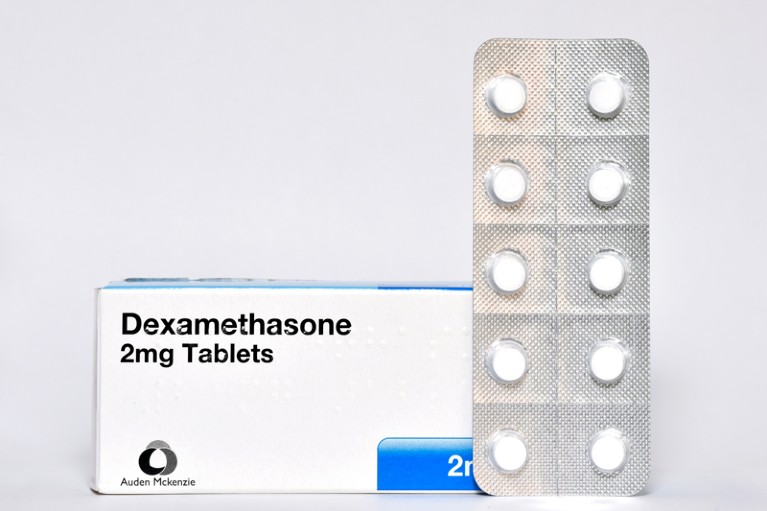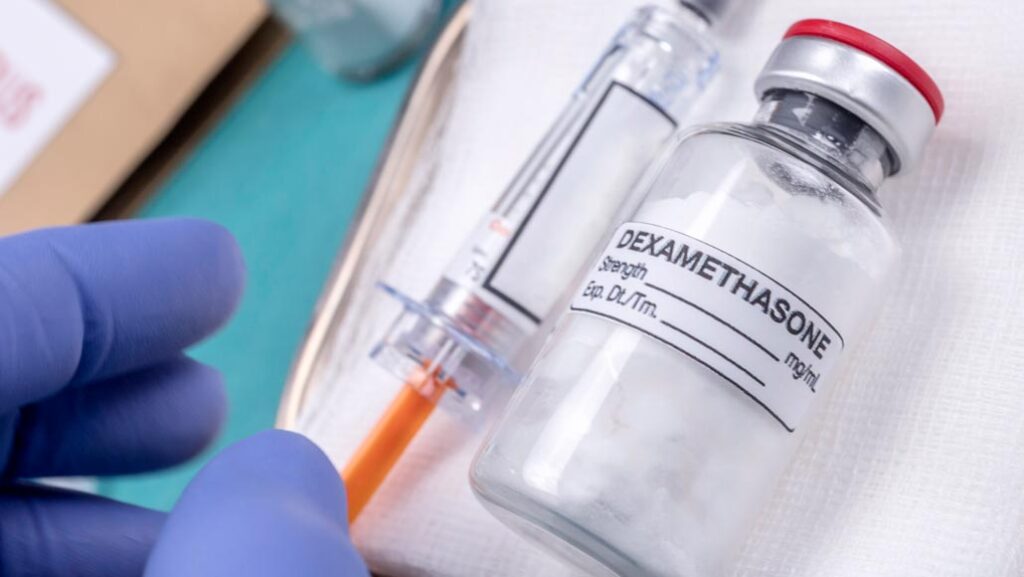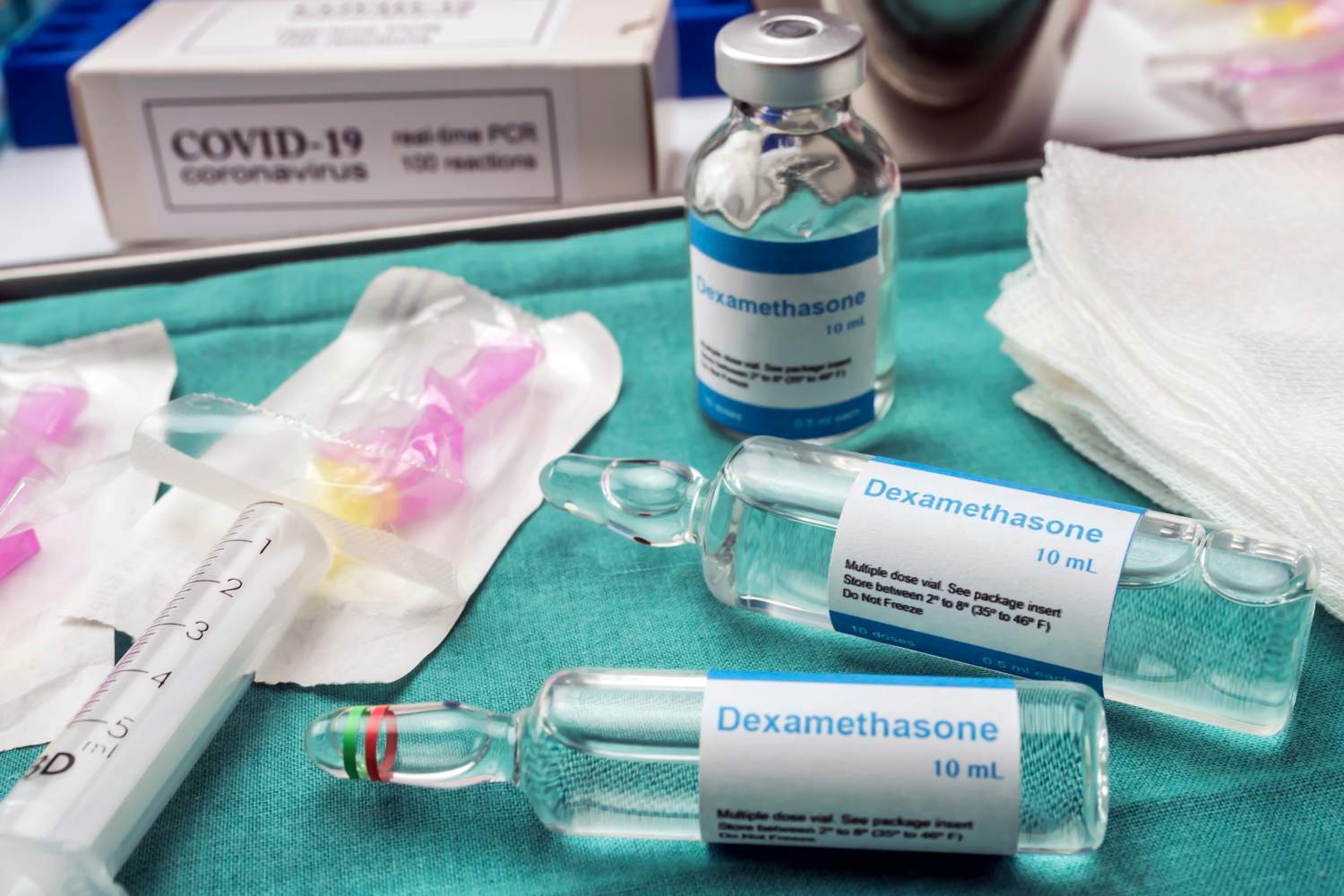Synthetic corticosteroids like Dexamethasone are commonly used in medicine. It is in a group of drugs called glucocorticoids, which effectively reduce inflammation and suppress the immune system. Dexamethasone is often prescribed because it is a strong anti-inflammatory and comes in different forms, such as pills, injections, creams, and eye drops. Medical treatments include many medicines. Dexamethasone has garnered attention. This article will go into depth about Dexamethasone, including its uses, how it works, how to give it, possible side effects, and other important information.
What is Dexamethasone?
Dexamethasone is a corticosteroid, which is a type of medicine. It is an artificial steroid that acts like the hormones that the adrenal glands make naturally. This strong drug is mostly used for its ability to stop inflammation and weaken the immune system. His medicine comes in different forms, such as pills, shots, and creams to put on the skin. It is mostly given to people with allergies, asthma, rheumatoid arthritis, and autoimmune diseases to reduce inflammation and calm their immune systems.
Raw Materials of Dexamethasone
- Hydrocortisone
- Acetic anhydride
- Sodium hydroxide
- Chloroform
- Methanol
- Ethyl acetate
- Sodium bicarbonate
- Sulphuric acid
- Dichloromethane
- Dimethylformamide
- Toluene
- Sodium chloride
- Potassium hydroxide
- Ethanol
- Water

Uses for Dexamethasone
– Treatment of Inflammatory Conditions: Inflammatory disorders, including rheumatoid arthritis, asthma, allergic responses, Crohn’s disease, and ulcerative colitis, are treated with Dexamethasone. It makes swelling, heat, pain, and other signs of inflammation disappear.
– Management of Immune Disorders: Dexamethasone treats several immune diseases because it weakens the immune system. It prevents SLE, MS, and organ transplant rejection immune system overreaction.
– Role in the Treatment of Cancer: Dexamethasone is a supporting drug for some types of cancer. It makes dealing with the side effects of chemotherapy, radiation therapy, and other cancer treatments easier. Dexamethasone helps to ease pain, stop sickness and vomiting, and reduce inflammation.
Benefits of Dexamethasone
Dexamethasone is a corticosteroid medicine that can help with several health problems. Here are some of the best things about it:
Anti-inflammatory effects: Dexamethasone has strong anti-inflammatory effects, which make it useful for lowering inflammation in the body. It helps ease the pain and other symptoms of inflammatory diseases like arthritis, asthma, and allergic reactions.
Immunosuppressive action: Dexamethasone can reduce the immune system, preventing the body from overreacting to autoimmune diseases or organ graft rejections. It helps reduce inflammation and avoid damage caused by an overactive immune system by turning down the immune response.
Conditions of the lungs: Dexamethasone has been especially helpful in treating lung problems like serious asthma and chronic obstructive pulmonary disease (COPD). It helps ease symptoms like wheezing and shortness of breath by reducing inflammation in the airways and improving the lungs.
Anti-allergic effects: Dexamethasone can treat allergic responses like allergic rhinitis (hay fever), skin conditions, and drug allergies. It helps eliminate symptoms like itching, redness, and swelling by lowering the immune reaction and reducing inflammation.
Support for cancer treatment: Dexamethasone aids cancer treatment. It helps control side effects like nausea and vomiting and relieves symptoms of certain types of cancer, like lymphomas and leukemias.
Reducing brain swelling: Injured brains can swell. This puts pressure on the brain and could cause more damage. Dexamethasone reduces brain edema and inflammation. This helps protect the brain and makes things better in these cases.

How does Dexamethasone work?
Dexamethasone affects gene expression and biological processes through binding to cell receptors. It stops the body from making inflammatory mediators and the immune system from responding. This reduces inflammation and relieves the symptoms of inflammatory and immune diseases. Inflammation releases cytokines. These cytokines help the process of inflammation. Dexamethasone inhibits cytokine production. This lowers inflammation and weakens the defense system.
Administration and Dosage
Pills, injections, and eyedrops include Dexamethasone. The user, condition, and severity of symptoms determine dosage and administration. Taking the medication exactly as the doctor or nurse tells you to is very important.
Pills: You should take dexamethasone pills by mouth with a glass of water. To avoid stomach distress, it’s better to take them with food.
Injections: Healthcare workers usually give intramuscular (into a muscle) or intravenous (into a vein) injections of Dexamethasone. Your doctor or nurse will decide where and how to give you the shot.
Eye/Ear Drops: Dexamethasone applied directly. For eye drops, tilt your head slightly, lie down for ear drops, and use clean hands to pull down your lower eyelid or gently pull your earlobe up and back. Put the number of drops on the label into the eye or ear canal, then close the eye (for eye drops) or tilt the head for a few minutes (for ear drops) to let the medicine spread.
Potential Side Effects
Just like any other medicine, Dexamethasone may have some side effects. The most prevalent side effects are hunger, weight gain, fluid retention, insomnia, mood changes, and gastrointestinal issues. Dexamethasone can induce osteoporosis, muscle weakness, high blood pressure, and infection when used long-term or in large doses.
- Increased appetite and weight gain
- Fluid retention and swelling
- Changes in mood, such as irritability or restlessness
- Difficulty sleeping (insomnia)
- Increased susceptibility to infections
- Indigestion, stomach upset, or nausea
- Muscle weakness or fatigue
- Increased sweating
- Changes in menstrual periods
ALSO READ: Who is Danny Johnson Grace Bible, Church Bozeman
Precautions and Considerations
Before taking Dexamethasone, it is important to tell your doctor about any health problems, allergens, or other medicines you are taking. Diabetes, high blood pressure, glaucoma, and systemic sickness patients should use Dexamethasone cautiously. Stopping Dexamethasone all at once can cause withdrawal signs.
Medical Supervision: Dexamethasone is a potent corticosteroid that requires medical supervision.
Allergies and Sensitivities: Tell your doctor if you know you are allergic to Dexamethasone or any other corticosteroids or if you think you might be. They can recommend an alternative medication or safety precautions.
Health Problems Before Taking Dexamethasone: People with fungal infections, tuberculosis, diabetes, high blood pressure, osteoporosis, glaucoma, or peptic sores may be unable to take it. Tell your doctor about any health problems you’ve had so that you can use the medicine safely.

Interactions with Other Medications
Some medicines, like anticoagulants, antifungal drugs, anticonvulsants, and antibiotics, may not work well with Dexamethasone. To avoid drug interactions, it is important to tell your doctor about your medicines, including over-the-counter drugs and herbal supplements. It, a potent corticosteroid, treats inflammation, allergies, autoimmune illnesses, and some cancers. Knowing how it might interact with other drugs is important to ensure safe and successful treatment.
FAQs
Q: Can it be used to help skin problems like eczema?
A: It can be used on the skin as creams or ointments to treat eczema and dermatitis, among other skin diseases.
Q: Does it make you gain weight?
A: As a side effect, it may make you eat more and gain weight. But the amount of weight gain can be different for each person.
Q: Is it safe to take it while I’m pregnant?
A: Talk to a healthcare worker before taking it while pregnant.
Q: Can it help with pain?
A: Most of the time, it is not used as the main pain reliever. Its main job is to reduce inflammation and control the signs of conditions that cause inflammation.
Q: Can it be taken for a long time?
A: It should only be used briefly and closely watched by a medical worker because it could cause serious side effects.
Conclusion
Dexamethasone, a potent corticosteroid, treats inflammation and immune system disorders. It is an important medicine in the medical field because it can reduce inflammation, slow down immune reactions, and relieve symptoms. But it’s important to use it under the guidance of a doctor and stick to the dose given to you to reduce the chance of side effects. It works because it can turn down the immune system. This lowers inflammation and stops immune-related harm. Because of this, it is especially good for treating asthma, rheumatoid arthritis, and allergic responses.
